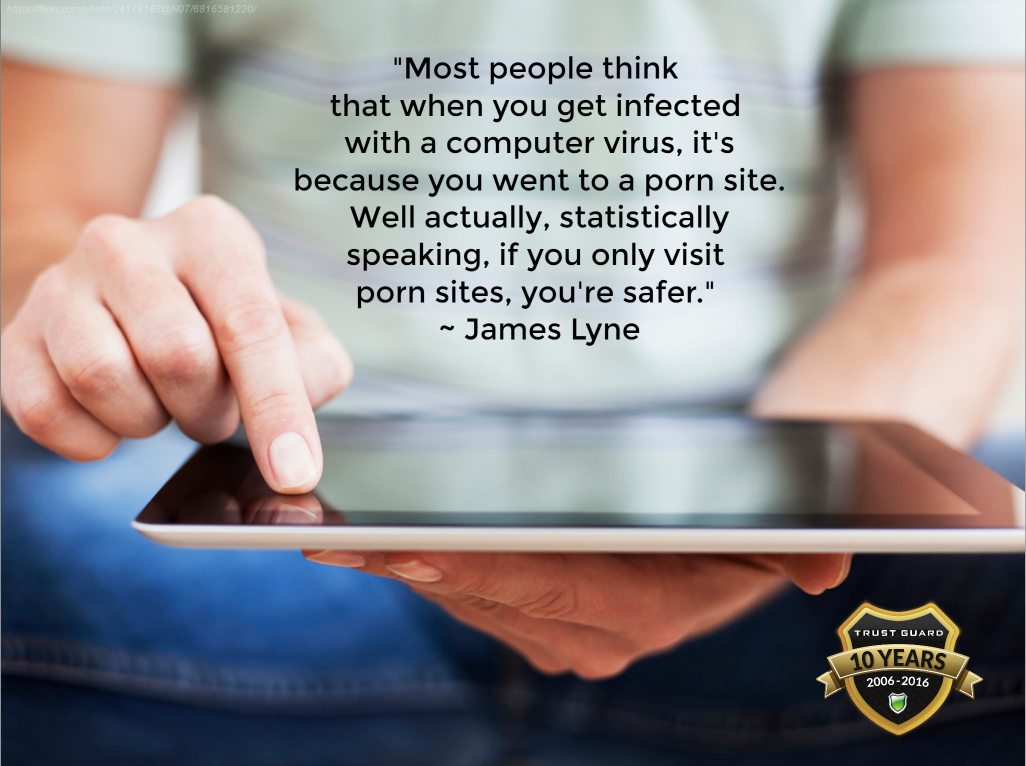James Lyne Says Cyber Crimes Happen Daily
James Lyne, a cyber security specialist with Sophos, presented a 20 minute TED Talk that you can and should watch here. In 2013, he discussed the basics of everyday cybercrime and the simple steps each of us can take to protect ourselves from cyber attacks. His comments are more valid today than they were then.
Unfortunately, most hackers never get caught, and those that do, by the time they get caught, have taught many, many, many hackers the same techniques they used to destroy online businesses and become multi-millionaires.
From everyday infections to international cyber crime syndicates, James Lyne gives us a glimpse into the dynamic and dangerous aspects of online connectivity. The threat of viruses and malware is growing every day. James threw out some very interesting statistics about the volume of attacks going on and who they are targeting.
There are 25,000 new pieces of malware every day.
There are 30,000 newly infected websites every day.
More than 80% of infected websites are small businesses.
The threats and attacks aren’t going to stop until those who are using technology start taking security and privacy seriously.
Lyne breaks down the threat of your computer being attacked to a level that all of us can relate to. He reminds us that even if we are taking all of the necessary precautions, our family members and co-workers could be exposing us.
How often have you uploaded a photo from your smartphone not realizing it has geographic coordinates linked to it? Did you know that when you use public Wi-Fi on your device, someone else in the same location is able to track other Wi-Fi networks to which your device has previously been connected? These are just a few of the points that Lyne covers in his presentation, proving his point be accessing networks from the TED audience.
Cyber criminals aren’t just your neighbors’ kids, sitting in their dark basements, hacking for fame. They are very sophisticated. In fact, they have product advertisements. You can now pay a hacking service to knock your business competitor offline. It gets even more involved than that. Lyne says that “cyber criminals now have crime packs with business intelligence reporting dashboards to manage the distribution of their malicious code. This is the market leader in malware distribution, the Black Hole Exploit Pack, responsible for nearly one-third of malware distribution in the last couple of quarters. It comes with technical installation guides, video setup routines, and get this, technical support. You can email the cyber criminals and they’ll tell you how to set up your illegal hacking server.”
Most malware isn’t very sophisticated and relies on users leaving themselves vulnerable. By educating yourself and learning basic security best practices you can avoid the majority of malware attacks. You should update, scan and immediately patch your systems. 
Lyne closes with the following, “You are going to see some astonishing stories in the news, you are going to read about malware doing incredible and terrifying, scary things. However, 99% of it works because people fail to do the basics. So my ask is this; go online, find these simple best practices, find out how to update and patch your computer, get a secure password, make sure you use a different password on each of your different sites and services online, find these resources, apply them. The Internet is a fantastic resource for business, for political expression, for art, and for learning. Help me and the security community, make life much much more difficult for cyber criminals.”
Trust Guard, the leader in website security, provides security scans of more than 75,500 vulnerabilities that hackers use to access websites. They’ve found that 86% of small businesses fail their first scan, because either the previous provider wasn’t scanning for enough vulnerabilities or because the website has never been scanned.
This is an incredibly high percentage – especially because any online company that takes credit cards is required by the Payment Card Industry to scan their sites periodically for vulnerabilities. If you don’t have anyone monitoring your website for security issues, or if you are concerned about the quality of the scans, ask Trust Guard to scan it. They’ll send you a detailed report as to whether or not you passed the security scan. When they find security holes, patch them quickly, as James Lyne suggests, to keep hackers away.
Take 20 minutes to watch the TED Talk YouTube video by James Lyne called “Everyday cybercrime — and what you can do about it.”




